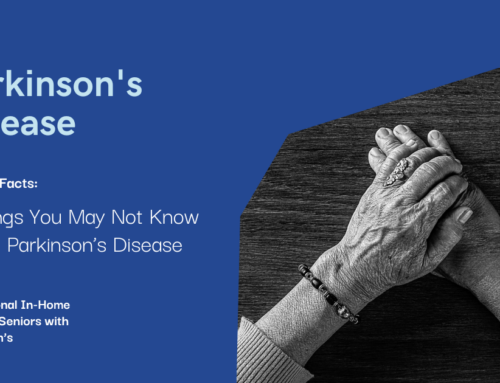Life is full of change — especially when someone close to you is diagnosed with a chronic condition like Parkinson’s disease (PD). PD is chronic and progressive. While symptoms often begin slowly, the damage to the central nervous system eventually worsens. The characteristic tremors, speech difficulties and rigid movements will steadily affect your loved one’s life, along with the condition’s emotional impact. Informed, proactive care can ease your loved one’s journey through each stage of this disease.
If you want to know how to help Parkinson’s patients and offer more than words of condolence, read on. While your responsibilities and involvement may evolve as the condition progresses, here are five ways you can support someone with Parkinson’s disease.
1. Learn About the Disease
You can be your loved one’s best ally if you learn about PD early on. Familiarize yourself with the symptoms, such as changes in physical capabilities and speech, as well as their impact on your loved one’s emotional and mental health.
This condition doesn’t manifest the same way in everyone. Your loved one may be able to do many activities they did before, such as work, hobbies and other everyday things. Yet, this can change in both subtle and drastic ways. So, be observant as symptoms develop.
You can educate yourself from reputable resources like the Parkinson’s Foundation and recommended literature. Ask questions at their medical appointments. Then, as your loved one progresses through each stage, you can be there to help them make informed decisions about treatments and disease management if they wish.
2. Encourage a Healthy Lifestyle
Just because there isn’t a cure for Parkinson’s does not mean that your loved one is powerless. A healthy lifestyle can slow the progression of the disease and keep your loved one healthier for longer. So encourage your loved one to achieve or maintain:
- A balanced diet
- Regular exercise
- Ample sleep
- Mental stimulation
3. Foster Emotional Well-Being
Some of the most startling challenges for those with PD are changes to their thoughts and feelings. Emotional support and empathy can be just as crucial as physical assistance. Mood swings, anxiety and depression are common. While you can be there as a shoulder to lean on or a listening ear, encourage your loved one to join a PD support group where they can share their experiences with others who fully understand. This may help them feel less isolated and alone.
4. Assist With Medications
Regular medication is a vital part of managing Parkinson’s disease. Consistency can make a massive difference in your loved one’s quality of life. Talk with them about how you can help supervise their medication schedule without overstepping. This could include a wall calendar where you track medications and keep note of side effects or a simple smartphone reminder that dings at designated times.
5. Know When You Need More Help
While you may want to be your loved one’s primary caregiver, there may be a time when their needs go beyond your capabilities. Signs you may need more help include:
- Physical deterioration
- Declined cognitive or mental health
- Hygiene and housekeeping difficulties
- Social isolation
CareGivers of America: Connecting You With a Reliable Parkinson’s Care Provider
If your loved one has Parkinson’s disease, you don’t have to care for them alone. CareGivers of America refers professional caregivers who know how to help you manage your loved one’s medical and personal needs. We are a licensed Nurse Registry and will work with you to find a caregiver that matches your unique situation.
We’ve worked with countless clients, referring 24/7 care professionals to support individuals battling chronic conditions. If you’re feeling overwhelmed and need help, reach out to CareGivers of America today.



